Home>diy>Building & Construction>How To Negotiate A New Construction House


Building & Construction
How To Negotiate A New Construction House
Modified: December 7, 2023
Learn valuable tips and strategies for negotiating the purchase of your dream home from a building construction expert. Increase your chances of getting the best deal on a new construction house.
(Many of the links in this article redirect to a specific reviewed product. Your purchase of these products through affiliate links helps to generate commission for Storables.com, at no extra cost. Learn more)
Introduction
Welcome to the world of new construction houses! If you’re in the market for a brand new home, congratulations on taking the exciting step of building your dream house. But before the construction process begins, there is an important step that often gets overlooked – negotiation. Just like any other major purchase, negotiating the terms and price of a new construction house can save you thousands of dollars and ensure that you get the best possible deal.
Negotiating a new construction house can seem daunting, especially if you’re unfamiliar with the building and construction industry. However, armed with the right knowledge and strategies, you can confidently navigate this process and come out on top. In this article, we will guide you through the essential steps to successfully negotiate a new construction house, from researching the market to finalizing the deal.
Before diving into the negotiation process, it’s crucial to do your homework. Researching the market will give you a better understanding of the current trends, prices, and availability of new construction houses in your desired location. This knowledge will empower you to make informed decisions and negotiate from a position of strength.
Setting your budget is another vital step in negotiating a new construction house. Determine how much you can afford to spend, taking into account any additional costs such as upgrades or customization options. Being clear on your budget will help you focus on properties that align with your financial goals and avoid overspending.
Identifying your needs and wants is crucial in negotiating a new construction house. Make a list of your non-negotiable must-haves and your wants, which can be negotiable during the process. This will give you a clear picture of what you’re looking for and enable you to prioritize your negotiations accordingly.
One of the most valuable resources in the home-buying process is a real estate agent. Hiring an experienced agent who specializes in new construction houses can provide you with invaluable guidance and representation. They can help you navigate the negotiation process, understand contracts, and ensure that your interests are protected.
Key Takeaways:
- Negotiating a new construction house involves thorough research, setting a realistic budget, identifying needs and wants, leveraging builder incentives, and strategic negotiation for the best deal.
- Finalizing the deal requires attention to detail, securing financing, reviewing contract terms, and completing necessary paperwork to officially become the proud owner of a new construction house.
Read more: How Much Is A New House Construction
Researching the Market
When negotiating a new construction house, it’s essential to have a solid understanding of the market conditions in your desired area. Conducting thorough research will give you a competitive edge and enable you to make informed decisions during the negotiation process.
Start by researching the current real estate trends in the neighborhood or city where you plan to build. Look for information on recent sales, average prices, and market inventory. This will help you determine whether the market is favoring buyers or sellers, and it will give you an idea of pricing expectations.
In addition to traditional real estate websites, consider using online platforms that specialize in new construction properties. Many of these platforms provide a wealth of information, including floor plans, pricing, and updates on new developments. By staying informed about the latest projects and pricing trends, you’ll be better equipped to negotiate effectively.
Don’t forget to explore the local area and assess its amenities and infrastructure. Research nearby schools, transportation options, shopping centers, and recreational facilities. The quality and convenience of these amenities can greatly impact the value of your new construction house, and they may also play a role in your negotiation strategy.
Furthermore, consider reaching out to homeowners or residents in the area. This can be done through online forums, social media groups, or even in-person conversations. By gathering insights from those who are already living in the neighborhood, you can gain valuable information about the advantages and disadvantages of the area, as well as any potential issues that may influence your negotiation strategy.
Lastly, consult with local professionals, such as real estate agents, appraisers, and contractors. They have extensive knowledge of the local market and can provide you with valuable advice throughout the negotiation process. Their expertise can help you gauge the fair market value of new construction houses in the area and provide insights into possible negotiation tactics.
By conducting thorough market research, you will be well-prepared to negotiate a new construction house. Understanding the local market conditions, pricing trends, and available amenities will empower you to make confident decisions and negotiate from a position of knowledge and strength.
Setting Your Budget
Before embarking on negotiations for a new construction house, it’s crucial to establish a realistic budget. Determining how much you can afford to spend will help you narrow down your options and negotiate with confidence.
Start by assessing your financial situation and considering your long-term goals. Take into account your income, savings, and any other sources of funds that you can allocate towards the purchase of a new construction house. It’s important to be honest with yourself about what you can comfortably afford, factoring in potential unexpected expenses.
Next, consider the additional costs associated with buying a new construction house. In addition to the base price of the property, there may be fees for upgrades, customization options, landscaping, and appliances. It’s essential to factor these expenses into your budget to ensure you’re accounting for the total cost of the house.
Consulting with a mortgage lender or financial advisor can be beneficial during this process. They can help you assess your borrowing capacity and determine the most suitable financing options for your situation. Getting pre-approved for a mortgage will also give you a clear idea of your budget and make you a more attractive buyer during negotiations.
Keep in mind that setting a budget is not just about determining the maximum amount you’re willing to spend. It’s also about considering your monthly expenses and ensuring that you can comfortably afford the mortgage payments and other ongoing costs associated with homeownership.
When negotiating a new construction house, it’s crucial to have a clear understanding of your financial parameters. This will allow you to focus on properties that align with your budget and negotiate based on your financial goals. Knowing your budget will also prevent you from getting carried away in the negotiation process and overspending on a property that may not be affordable in the long run.
Setting a realistic budget is a crucial step in negotiating a new construction house. By carefully considering your financial situation, factoring in additional costs, and understanding your borrowing capacity, you will be able to negotiate confidently and find the perfect home that fits your budget and lifestyle.
Identifying Your Needs and Wants
When negotiating a new construction house, it’s important to clearly identify your needs and wants. Understanding your priorities will help you focus your negotiations and ensure that you’re making informed decisions throughout the process.
Start by making a list of your non-negotiables, the features and characteristics that are essential for your new home. These could include the number of bedrooms, bathrooms, the size of the property, or specific layouts that accommodate your lifestyle. Identifying your needs will help you filter out properties that don’t meet your basic requirements and save you time and energy during negotiations.
Next, consider your wants, the features and amenities that would be nice to have but are not essential. This could include upgrades such as granite countertops, hardwood floors, or a landscaped backyard. While these features may add to the overall appeal and enjoyment of the home, they are negotiable and can be used as bargaining chips during the negotiation process.
Prioritize your needs and wants based on their importance to you. This will give you a clear understanding of what you’re willing to compromise on and what you’re not. Having a clear vision of your priorities will not only help you during negotiations but also ensure that you are satisfied with the final result.
Remember to consider both the present and future when identifying your needs and wants. Think about your long-term goals, such as starting a family or working from home, and how the property should accommodate those aspirations. Having a forward-thinking mindset will help you negotiate a new construction house that meets your needs for years to come.
Additionally, take into account the location and the amenities that are important to you. Is proximity to schools, parks, or public transportation a priority? Do you prefer a quiet suburban neighborhood or a bustling urban environment? Consider how these factors align with your lifestyle and adjust your negotiation strategy accordingly.
By identifying your needs and wants, you will have a clear vision of what you’re looking for in a new construction house. This will help you negotiate with confidence, prioritize your negotiations, and ensure that you find a property that meets your requirements and provides you with a comfortable and enjoyable living environment.
Hiring a Real Estate Agent
When negotiating a new construction house, one of the most valuable resources you can have in your corner is a real estate agent. Hiring an experienced agent who specializes in new construction properties can provide you with invaluable guidance, representation, and negotiation expertise.
A real estate agent who is well-versed in the local market can help you navigate the complex negotiation process. They will have a deep understanding of current trends, pricing dynamics, and builder incentives in the area. This knowledge will empower you to make informed decisions and negotiate from a position of strength.
Furthermore, a real estate agent can help you identify new construction developments that align with your needs and budget. They have access to exclusive listings and industry contacts that can provide you with a wider array of options to choose from. With their assistance, you can save time and energy by focusing on properties that meet your criteria.
During the negotiation process, a skilled agent will act as your advocate and negotiator. They will have the expertise to evaluate property values, review builder contracts, and negotiate terms on your behalf. They understand the intricacies of builder incentives, upgrades, and customization options, and can help you leverage these to your advantage.
Having a real estate agent also adds a layer of protection to your negotiation process. They are well-versed in the legal aspects of real estate transactions and can review contracts and terms to ensure that your interests are protected. They will also have strong negotiation skills and will know when to push for concessions or walk away from a deal that is not in your best interest.
When hiring a real estate agent, look for someone who has experience in new construction properties and a strong track record of successful negotiations. Ask for referrals from friends, family, or colleagues who have recently bought a new construction house. Interview potential agents and ask about their knowledge of the local market, their negotiation strategies, and their approach to client representation.
Ultimately, hiring a real estate agent can make a significant difference in your ability to negotiate a new construction house successfully. They bring valuable expertise, market knowledge, and negotiation skills to the table, ensuring that you have a trusted ally throughout the negotiation process.
Understanding Builder Incentives
When negotiating a new construction house, it’s important to understand and leverage builder incentives. These incentives, offered by builders to attract buyers, can provide significant financial benefits and enhance the overall value of your purchase.
Builder incentives can come in various forms, ranging from discounts on the purchase price to upgrades or additional features included at no extra cost. By understanding these incentives, you can effectively negotiate and maximize the value you receive from the builder.
One common builder incentive is a price discount. Builders may offer a percentage off the list price or provide credits towards closing costs. These discounts can save you thousands of dollars and make the purchase more affordable. During negotiations, it’s essential to inquire about any current promotions or discounts available and use this information to negotiate a lower purchase price.
Another type of incentive is the inclusion of upgrades or additional features. Builders may offer to add premium finishes, appliances, or customizations at no extra cost. These upgrades can enhance the value and appeal of the property. Take the time to understand the standard features included in the base price and identify any desirable upgrades that you would like to negotiate for.
Some builders may also offer financing incentives, such as lower interest rates, discounted mortgage points, or assistance with closing costs. These incentives can help reduce your financing costs and make the overall purchase more affordable. When negotiating, ask the builder about their financing options and explore any potential incentives or discounts available.
It’s important to note that builder incentives are not automatically given and may vary depending on market conditions and the builder’s sales goals. It’s crucial to conduct thorough research and inquire about any available incentives during the negotiation process.
When negotiating builder incentives, approach the process with a clear understanding of their value and how they align with your needs and wants. Determine which incentives are most important to you and be prepared to prioritize and negotiate based on those preferences.
Keep in mind that builder incentives can sometimes be used as negotiation tools. If a builder is less willing to negotiate the purchase price, you may be able to negotiate for additional upgrades or customization options instead. Flexibility and creativity in your negotiation approach can lead to a win-win outcome for both parties.
Understanding and leveraging builder incentives can significantly enhance your purchasing power and overall value when negotiating a new construction house. By educating yourself about available incentives and being strategic in your negotiations, you can ensure that you reap the maximum benefits from your purchase.
When negotiating a new construction house, research the market value of similar properties in the area to have a better understanding of the fair price. This will give you leverage during negotiations.
Negotiating the Sale Price
When it comes to negotiating a new construction house, one of the primary areas of focus is the sale price. Getting the best possible price for the property is a crucial part of the negotiation process. Here are some strategies to help you negotiate the sale price effectively.
Research the market: Before entering into negotiations, thoroughly research the current market conditions in the area where you plan to build. This will give you a better understanding of the fair market value and help you determine a reasonable starting point for negotiations. Look at recent sales data and comparable properties to gauge the price range for similar new construction houses.
Identify weaknesses: During the negotiation process, look for weaknesses in the builder’s position that you can leverage to negotiate a lower sale price. For example, if the builder has many unsold units or if there are similar properties available at lower prices in the area, use these factors to your advantage and negotiate for a better deal.
Be prepared to walk away: It’s important to be willing to walk away from a deal if the terms and price don’t meet your expectations. This mindset will give you leverage in the negotiation process and show the builder that you are prepared to look for other options. Sometimes, a willingness to walk away can prompt the builder to make concessions and improve their offer.
Focus on value, not just price: While negotiating the sale price is essential, don’t overlook the value of the property. Consider the quality of construction, the reputation of the builder, and the overall appeal of the house. Negotiating for a lower price while compromising on important factors may not be worth it in the long run. Ensure that you’re getting good value for your money and negotiating for the overall package, not just the sale price.
Be respectful and professional: Keep in mind that negotiations are a delicate balance between getting the best deal and maintaining a positive relationship with the builder. Approach negotiations with a respectful and professional demeanor to establish a foundation of trust and cooperation. Being friendly and approachable can help foster a more productive negotiation process.
Consider long-term savings: When negotiating the sale price, keep in mind the potential long-term savings that can be obtained. For instance, a builder may be more inclined to reduce the sale price if you agree to use their preferred lender or purchase specific upgrades or customization options. These savings can add up over time and make a significant difference in your overall expenses.
Be open to compromise: Negotiations often involve give and take. Be open to compromising on certain aspects, such as the inclusion of upgrades or customization options, in exchange for a lower sale price. Look for win-win solutions that benefit both parties and result in a satisfactory outcome for everyone involved.
By employing these strategies, you can negotiate the sale price of a new construction house more effectively. Remember to do your research, be prepared to walk away if necessary, focus on the overall value of the property, maintain a professional approach, and be open to compromise. With persistent negotiation and careful consideration, you can secure a favorable sale price that aligns with your budget and needs.
Negotiating Upgrades and Customizations
When negotiating a new construction house, one area where you can have significant influence is in negotiating upgrades and customizations. Builders often offer a range of options to personalize your home, and negotiating these upgrades can enhance the value and customization of your new property. Here are some strategies to help you negotiate upgrades and customizations effectively.
Prioritize your wish list: Before starting negotiations, create a wish list of upgrades and customizations that are important to you. Determine which items are non-negotiable and those that can be flexible. This will help you focus your negotiations on the most important features and have a clear idea of what you’re asking for.
Research the cost of upgrades: Before entering into negotiations, research the cost of the upgrades you’re interested in. Understanding the pricing will provide you with leverage when negotiating. Look for estimates from third-party contractors or ask the builder for pricing information on the upgrades you’re considering. This will help you determine a fair value and negotiate accordingly.
Bundle upgrades for better deals: When negotiating upgrades, consider bundling them together. By offering to purchase multiple upgrades in a package deal, you may be able to negotiate a better overall price. This approach can be beneficial for both parties, as the builder may be more inclined to offer discounts or better terms when multiple upgrades are involved.
Show your commitment and readiness: Builders are more likely to negotiate upgrades and customizations with buyers who demonstrate their commitment and readiness to move forward. If you’re well-prepared with your financing in place and show confidence in your decision to move forward with the purchase, the builder may be more receptive to offering favorable terms and pricing on upgrades.
Consider timing and demand: The timing of your negotiation can impact your ability to negotiate upgrades and customizations successfully. If the builder has many unsold units or if the market is slow, they may be more willing to negotiate on upgrades and offer better deals. Likewise, negotiating during slower seasons or towards the end of the builder’s fiscal year may increase your chances of securing favorable terms.
Be open to trade-offs: When negotiating upgrades and customizations, be open to trade-offs and alternatives. If the builder is unable to offer a discount on an upgrade, consider asking for additional amenities or features that provide similar value. For example, if the upgraded countertops are not negotiable, you could ask for additional lighting fixtures or upgraded flooring instead.
Review the contract: Once you have negotiated the upgrades and customizations, carefully review the contract before signing. Ensure that all agreed-upon details are clearly documented, including the specifications, pricing, and timelines. It’s always a good idea to have a real estate attorney review the contract to ensure your interests are protected.
By employing these strategies, you can negotiate upgrades and customizations that enhance the value and personalization of your new construction house. Remember to prioritize your wish list, research pricing, bundle upgrades, show commitment, consider timing, and be open to trade-offs. With effective negotiation, you can create a home that reflects your vision and meets your needs.
Reviewing Contract Terms
Reviewing the contract terms of a new construction house is a critical step in the negotiation process. It ensures that both parties are clear on their rights, obligations, and any potential contingencies. Here are some key points to consider when reviewing the contract terms.
Understand the timeline: Pay close attention to the timeline outlined in the contract. Look for the estimated completion date of the construction, as well as any milestones or deadlines that need to be met. Understanding the timeline will help you plan for the move-in and coordinate any necessary arrangements, such as selling your current property or arranging interim housing.
Examine the payment schedule: The contract should include a payment schedule that outlines when and how payments are to be made throughout the construction process. Review this schedule to ensure it aligns with your financial capabilities and expectations. If there are any discrepancies or concerns, discuss them with the builder and seek clarification before signing the contract.
Clarify warranty and maintenance terms: It’s important to understand the warranty and maintenance terms provided by the builder. Review what is covered under the warranty, the duration of the warranty period, and any maintenance requirements or responsibilities. This will help you determine what you can expect in terms of support from the builder after the construction is complete.
Check for contingencies and provisions: Review the contract for contingencies and provisions that protect your interests. These may include clauses related to financing, inspection, or walk-throughs. Ensure that these provisions are fair and reasonable, and seek legal advice if necessary to fully understand their implications.
Consider dispute resolution options: In the event of a dispute between you and the builder, the contract should outline the preferred method of resolution. This could include mediation, arbitration, or litigation. Familiarize yourself with the chosen method and seek legal advice to understand your rights and the potential implications of the chosen dispute resolution process.
Inspect specifications and drawings: Carefully review the specifications and drawings included in the contract. These outline the details of the construction, including materials, dimensions, and finishes. Ensure that these match your expectations and any agreements made during the negotiation process. If there are any discrepancies or areas of concern, discuss them with the builder to clarify and document any necessary changes.
Seek legal advice: It’s always a prudent choice to seek legal advice before signing any contract, especially when it involves a significant investment like a new construction house. A real estate attorney can review the contract, explain its terms and implications, and ensure that your interests are protected. They can also help negotiate any necessary amendments or additions to the contract.
By thoroughly reviewing the contract terms, you can ensure that both parties are on the same page and that your rights and interests are protected. Take the time to understand the timeline, payment schedule, warranty and maintenance terms, contingencies, dispute resolution options, and specifications. Seeking legal advice is highly recommended to ensure that your contract is fair and in line with your expectations.
Read more: What Is A House Construction
Finalizing the Deal
After successfully negotiating the terms of a new construction house, the final step is to finalize the deal. This involves completing all necessary paperwork and taking the necessary steps to ensure a smooth and successful transaction. Here are some key aspects to consider when finalizing the deal.
Secure financing: If you require financing for your new construction house, ensure that you have secured your mortgage or loan before proceeding with the finalization of the deal. Provide all necessary documents to your lender and follow their instructions to complete the financing process. This will ensure that funds are available to complete the purchase on the agreed-upon terms.
Obtain a title search and insurance: It is important to obtain a title search to verify the ownership of the property and ensure that there are no liens or legal issues that may affect your purchase. Additionally, consider purchasing title insurance to protect yourself against any unforeseen issues with the title in the future. Consult with your real estate attorney for guidance on this matter.
Arrange for a final walk-through: Before closing the deal, arrange for a final walk-through of the property. This allows you to inspect the construction and ensure that everything meets your expectations and the agreed-upon specifications. Look for any issues or discrepancies and document them to address with the builder before finalizing the deal.
Review all documents carefully: Take the time to review all the documents related to the purchase carefully. This includes the final contract, addendums, warranties, and any other legal paperwork involved. Ensure that everything aligns with the negotiated terms and that there are no surprises or discrepancies. Seek legal advice if needed to fully understand the implications of the documents.
Schedule and attend the closing: The closing is the final meeting where the purchase of the new construction house is completed. It typically involves signing the necessary documents and transferring ownership from the builder to you as the buyer. Work with your real estate agent, attorney, or closing agent to schedule and prepare for the closing. Be prepared to bring any required documentation and funds for the closing costs and down payment.
Review the final settlement statement: Before signing the closing documents, carefully review the final settlement statement. This document provides a breakdown of all the costs and credits associated with the purchase. Ensure that everything is accurate and matches your expectations. If you have any questions or concerns, address them at this stage before signing.
Complete the payment: At the closing, you will be required to make the necessary payments for the purchase, including the down payment and closing costs. Arrange for the funds to be available in the appropriate form, such as a certified check or wire transfer, and ensure that the payment is made as per the instructions provided. Request a receipt for the payment for your records.
Secure insurance coverage: Before taking possession of the new construction house, arrange for homeowners insurance coverage. This is crucial to protect your investment and provide financial security in the event of any unforeseen damages or losses. Consult with insurance professionals to determine the best coverage for your needs.
Take possession and enjoy your new home: Once all the necessary paperwork is completed, the deal is finalized, and the payments are made, it’s time to take possession of your new construction house. Celebrate this milestone and start enjoying your beautiful new home!
Finalizing the deal for a new construction house requires careful attention to detail and collaboration with various professionals. By following these steps and ensuring that all the necessary paperwork and payments are completed, you can confidently finalize the deal and officially become the owner of your dream home.
Conclusion
Negotiating a new construction house can be a complex and exciting process. By following the steps outlined in this article, you can navigate the negotiation process with confidence and maximize the value and customization of your new home.
Researching the market, setting your budget, and identifying your needs and wants are crucial first steps in the negotiation process. Understanding the builder incentives and leveraging them to your advantage can help you secure a better deal. Working with a knowledgeable real estate agent can provide you with expert guidance and representation throughout the negotiation process.
Negotiating the sale price and upgrades/customizations requires careful consideration and strategic thinking. Being prepared, knowing your priorities, and being willing to compromise can lead to a successful negotiation outcome. Reviewing and understanding the contract terms, and seeking legal advice when necessary, ensures that both parties are protected and clear on their responsibilities.
By finalizing the deal, completing the necessary paperwork, obtaining financing, and securing insurance, you can officially become the proud owner of your new construction house. It’s an exciting milestone that marks the culmination of your negotiation efforts.
Throughout the negotiation process, it’s important to strike a balance between achieving your desired outcomes and maintaining a positive and respectful relationship with the builder. Negotiations are a collaboration, and by approaching them with openness, professionalism, and a willingness to find mutually beneficial solutions, you can lay the foundation for a successful homeownership journey.
Remember, each negotiation is unique, and there may be unexpected challenges along the way. However, with the right knowledge, preparation, and mindset, you can navigate through the negotiation process and secure a new construction house that aligns with your vision and meets your needs.
So, roll up your sleeves, arm yourself with information, and embrace the opportunity to negotiate the best deal for your new construction house. Happy negotiating and congratulations on your upcoming dream home!
Frequently Asked Questions about How To Negotiate A New Construction House
Was this page helpful?
At Storables.com, we guarantee accurate and reliable information. Our content, validated by Expert Board Contributors, is crafted following stringent Editorial Policies. We're committed to providing you with well-researched, expert-backed insights for all your informational needs.
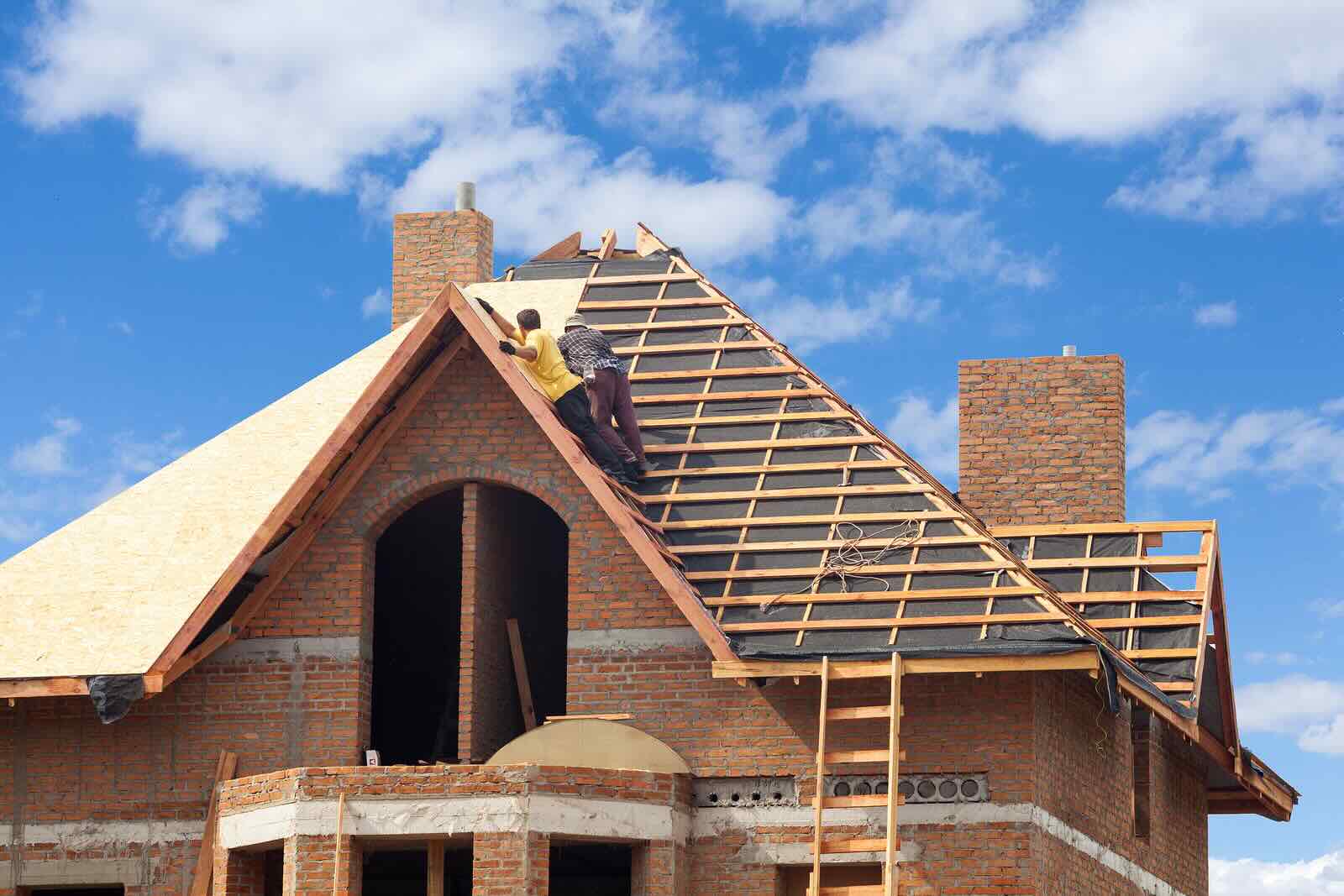




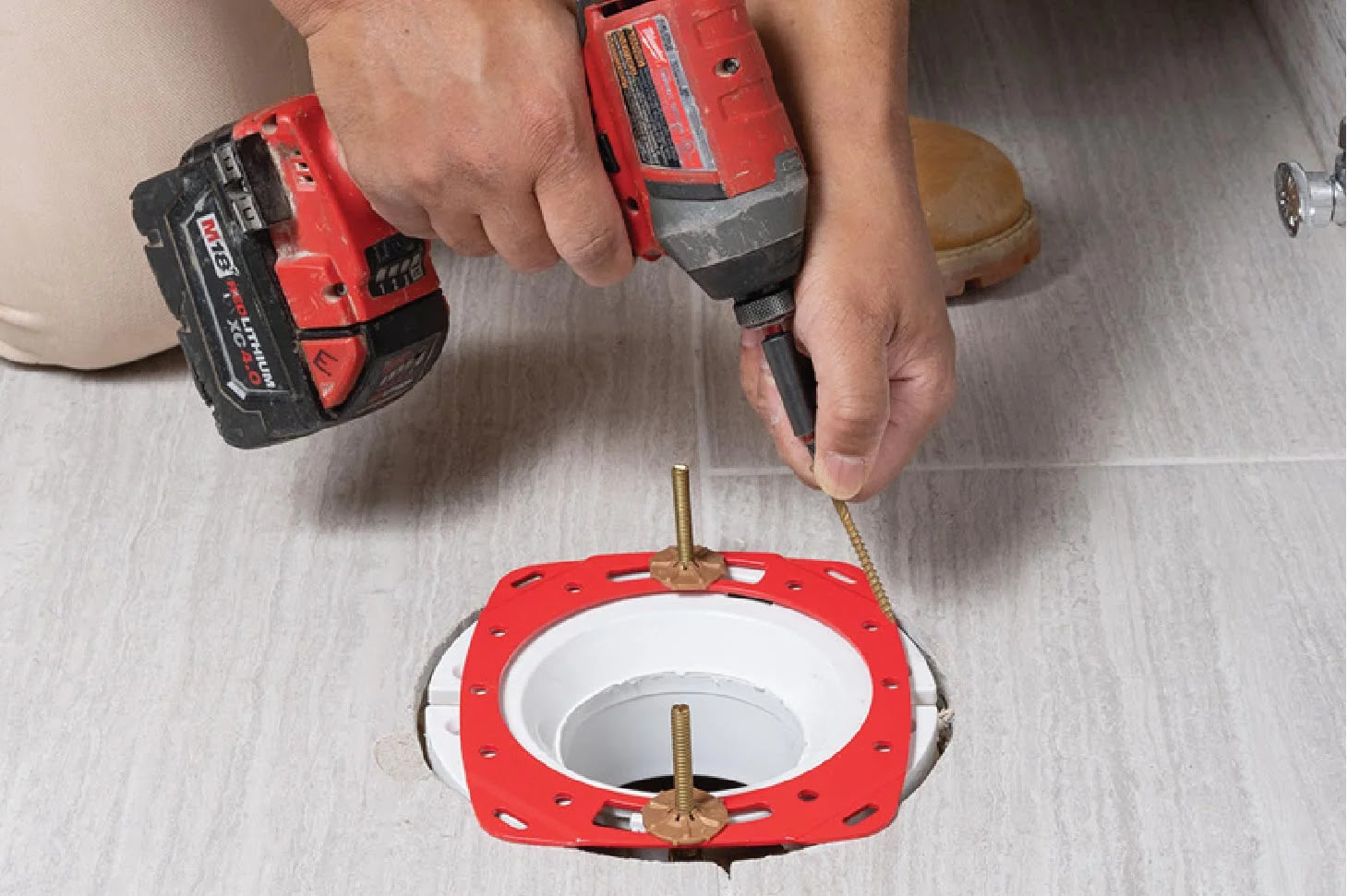
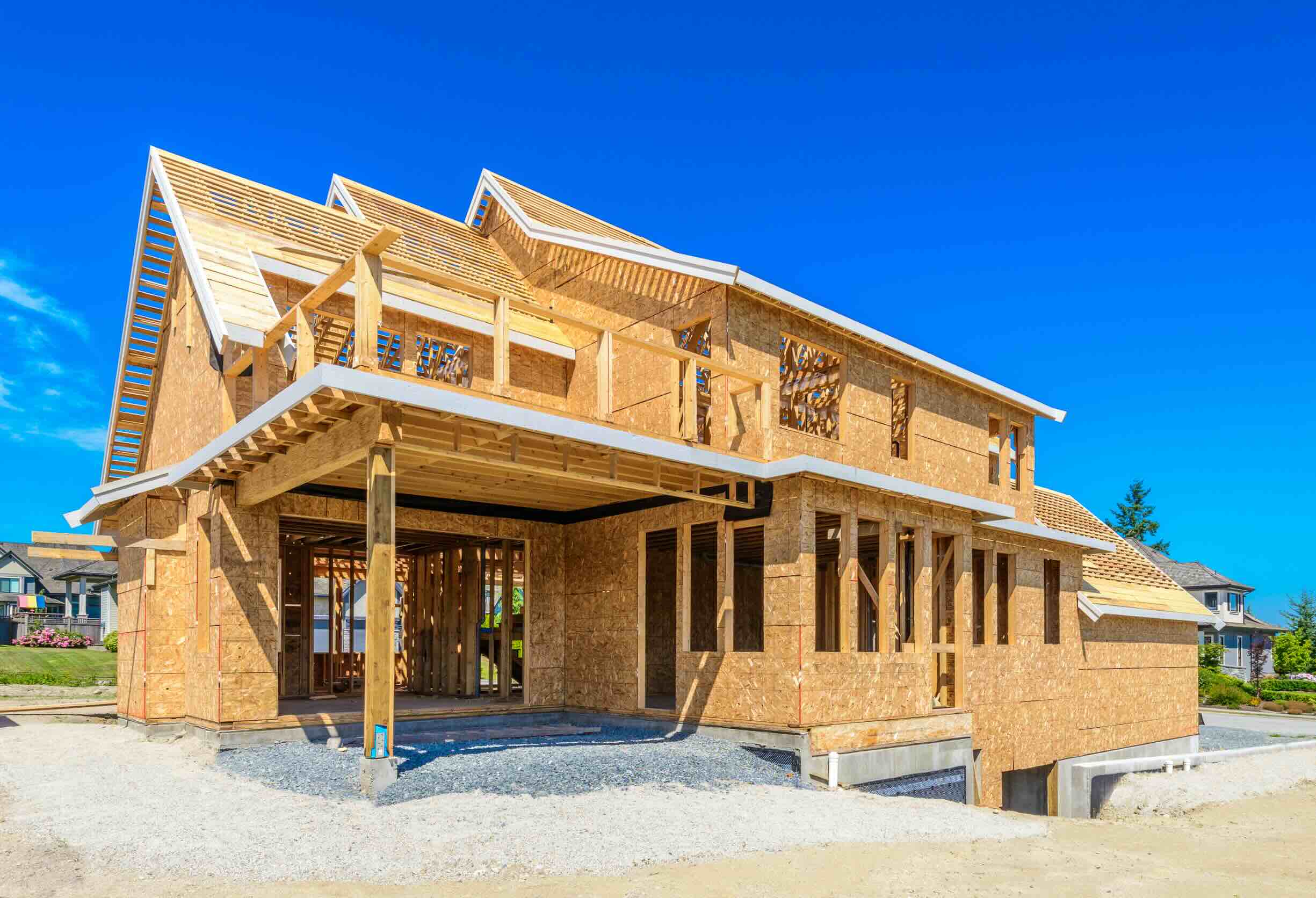
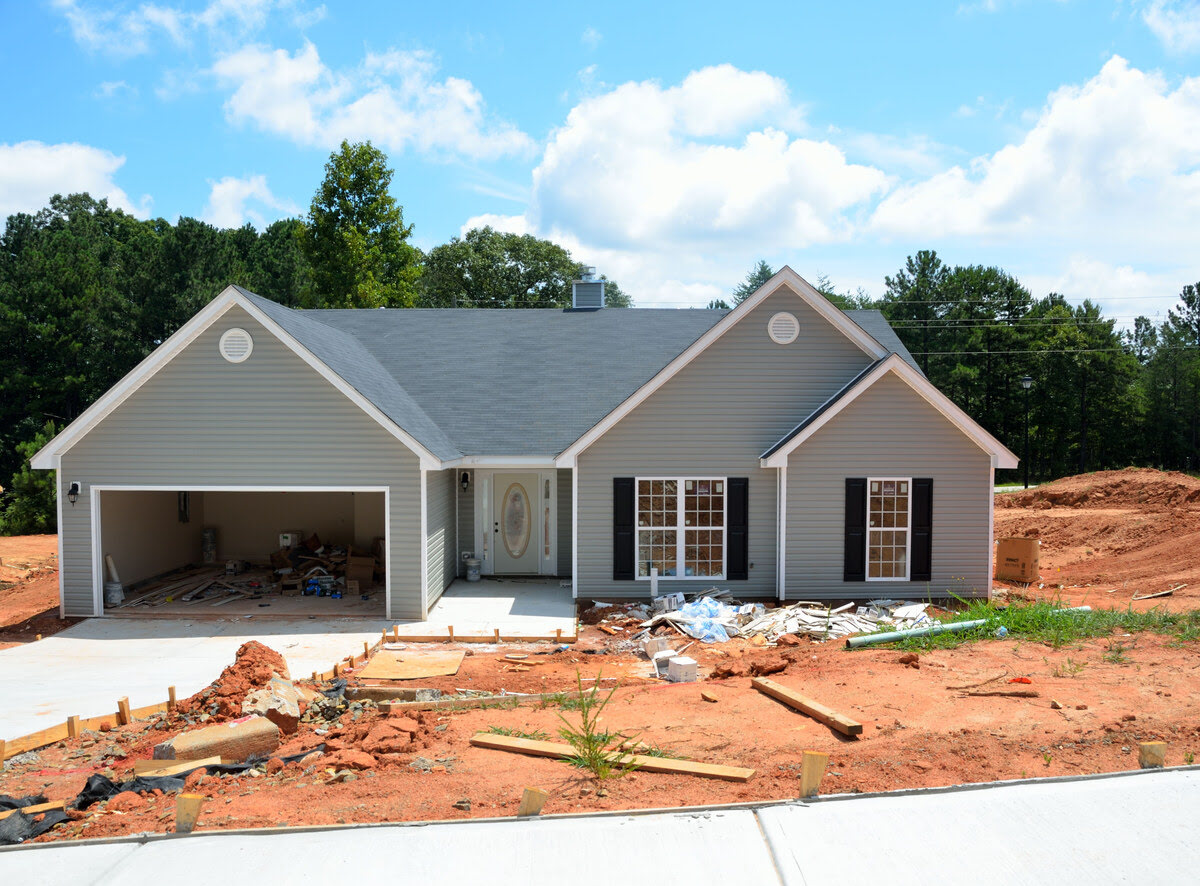
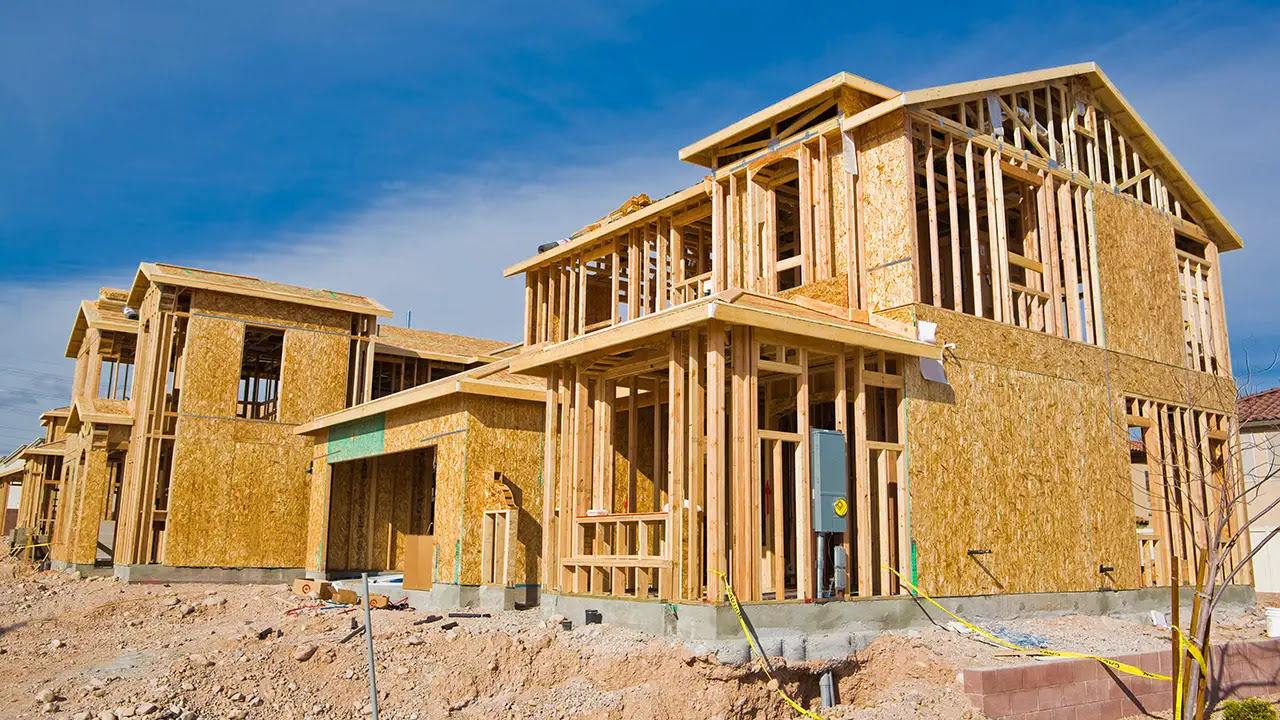





0 thoughts on “How To Negotiate A New Construction House”